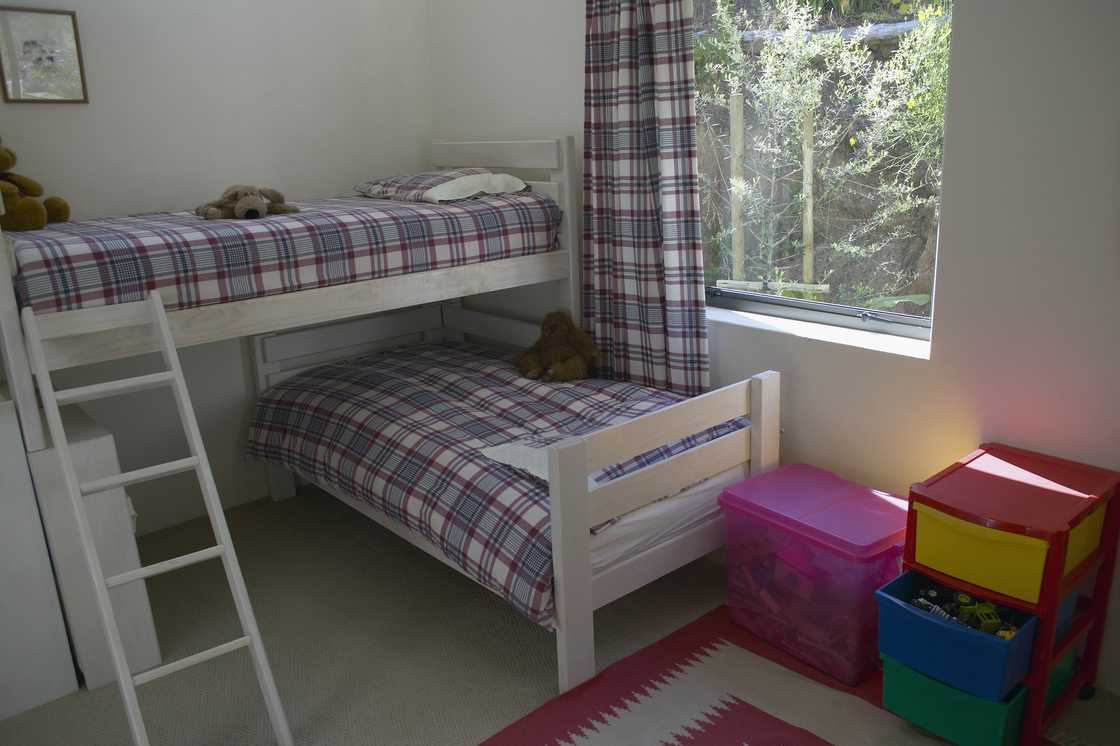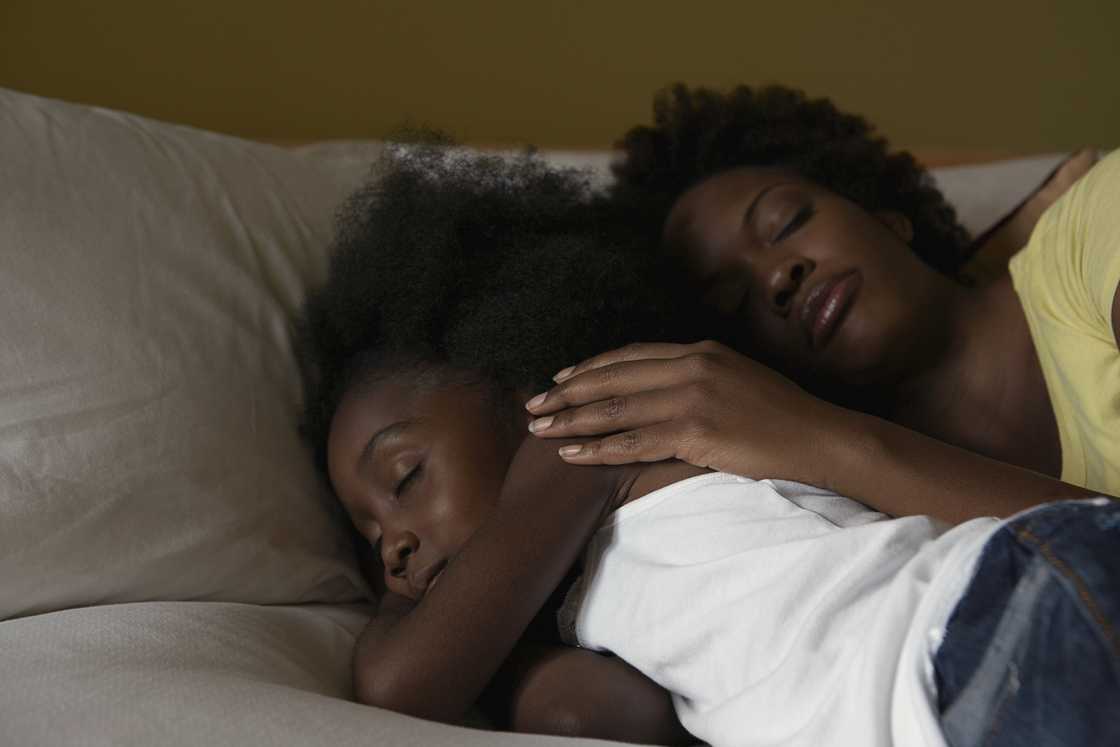I Said No To The Tablet — We Turned the Stand-Off into a Weekend Room Makeover
The look on my daughter's face could have won an award for heartbreak. "Everyone else gets what they want when they cry," she said. "Why are you always so strict?" I stood there, her brother watching from the sofa, half amused, half relieved that for once, he was not the one in trouble.

Source: UGC
All I had said was no.
No, to a shiny new tablet she had not earned. No to the easy way out, the quick gift that would have calmed her frustration for a day but taught the wrong lesson for years.
But in that moment, reason did not matter. I was the villain.
My husband glanced at me over her head, silently pleading for a truce. He hates tension. I hate inconsistency. Between us, one always folds. That time, I did not.
DON'T MISS IT: Stay Away From Fake News With Our Short, Free Fact-Checking Course. Join And Get Certified!
"She has been working hard," he whispered later. "Maybe just this once?"
"Then it will never be 'just once,'" I said. "We will teach her that tears are currency."
The house grew quiet after that. The kind of quiet that sits on dinner plates and follows you down the hallway.
For two days, she refused to talk to me. Her brother mirrored her silence, just in case siding with me would make him next in line for disappointment.

Source: Getty Images
I began to question myself. Maybe I had been too harsh. Maybe parenting was just about finding clever ways to bribe peace back into the room.
Then one evening, as I scrolled through my phone, I stumbled upon a parenting article about turning family conflicts into projects. It sparked an idea.
If the problem was entitlement, perhaps the cure was participation.
So I decided. Instead of another lecture, I announced a plan.
"We are doing a room makeover," I said at breakfast. "You two will design it, work on it, and earn every piece that goes into it."
My husband looked at me, one eyebrow raised. "A peace treaty?"
"Better," I said, smiling. "A partnership."
That weekend, the divided house started to hum again; this time with teamwork.
I grew up in a home where "no" was a complete sentence. My parents did not explain much, but they were consistent. A rule was a rule, and boundaries were part of love.

Source: Getty Images
When I became a mother, I wanted something softer. I wanted my children to feel heard, to know the "why" behind the "no." I wanted a conversation, not a command.
But I learned quickly that children will test boundaries not because they want to break them, but because they are trying to understand where safety ends and freedom begins.
My daughter, Mbali, is eleven years old, a bundle of energy and imagination. She paints everything, including her school notebooks. Her older brother, Khotso, is thirteen, quiet and logical, a boy who prefers video games to social gatherings. Together, they form the kind of sibling duo that could either build a rocket or burn down the kitchen, depending on the day.
My husband, David, is the peacekeeper in our home. He is patient, funny, and conflict-averse. If the children cry, his first instinct is to fix it quickly, even if it means undoing a rule.

Read also
I Told Him About The Second Pregnancy And He Walked Away - The Letter Reminded Me I Had A Future

Source: Getty Images
It started small.
If I said, "No sweets before dinner," he would slip them a biscuit.
If I grounded Khotso for forgetting chores, David would quietly lift the restriction the next day.
I called it "parenting with loopholes." He called it "balancing love."
But soon, the balance tipped.
When Mbali entered senior primary, her requests grew bolder: new shoes because "everyone has them," a phone "for school communication," and eventually, a tablet "for homework."
When I asked her to wait until the next term, she went to her father first. He said he would "think about it." She heard that as permission.
So when I later said no, it felt like betrayal.
That argument wasn't about a gadget. It was about our credibility as parents. It was about two adults whose good intentions were sending mixed messages.
That night, after the kids went to bed, I told David, "We need to show them that consistency is love, not punishment."

Read also
She Walked Out of Handover in Tears — He Called Her Back, Fixed the Remark, and Drew a Plan

Source: Getty Images
He sighed, rubbing his temple. "But I hate seeing them sad."
"I know," I said. "But sadness teaches empathy. If we rescue them from every disappointment, they will never build resilience."
The next morning, I resolved to stand firm, not to prove a point, but to restore trust.
I called a family meeting that evening. Nobody was thrilled.
Mbali slouched in her chair. "Is this another speech about rules?"
"No," I said. "It is about possibilities."
Her brother sat up. "Like a challenge?"
"Exactly. You both want something, right? Mbali wants a tablet. You want new shelves for your games. Let us make a deal. You will earn them together."
David frowned. "Earn how?"
"Through a project," I said. "We are going to transform your room. You will plan, design, and budget. If you stick with it, you will both get what you want, but through effort, not entitlement."

Source: Getty Images
Mbali's eyes widened. "A makeover?"
"Yes, but you do the work."
Khotso groaned. "You mean, real work?"
"Painting, cleaning, and organising. That kind of work."
Their excitement dimmed slightly, but curiosity kept them from refusing.
We gave them a modest budget of R1,400 and two weekends to work with. They were in charge of how to spend it, as long as they made it stretch the period.
The first Saturday was chaos.
They argued over colours, furniture placement, and who would hold the measuring tape.
"You are not the boss of the room!" Mbali snapped.
Khotso rolled his eyes. "Then stop acting like an interior designer from TV."
I stood by the door, pretending to water plants. David whispered, "Should we step in?"
"No," I said quietly. "They are negotiating. Let them learn."

Source: Getty Images
Two hours later, laughter replaced the tension. I peeked in and saw them sketching a floor plan.
Their theme was "creative energy." Mbali would have a small art corner with plants and light, and Khotso would have shelves and a reading nook. The centre would hold a shared corkboard for drawings, jokes, and reminders.

Read also
She Meets Him at the Bagels — He Installs Spyware; She Finds a Studio and Reclaims Her Life
By the afternoon, they were sweeping, scrubbing, and sorting through old toys. They made piles: donate, keep, and throw away.
David joined later with cold juice, grinning. "I have never seen them this busy without a screen involved."
"It is called ownership," I said.
That evening, Mbali asked, "Mum, can we repaint next Saturday?"
"You tell me," I said. "Do you still have enough in your budget?"
She looked at her brother. "If we skip the LED strip, maybe yes."
He nodded. "Deal."
For the first time, I watched my children learn compromise not through lectures, but through decisions that mattered.

Source: Getty Images
The second weekend arrived with unexpected teamwork.
At 8 a.m., they blasted music from Mbali's little speaker. Khotso laid old newspapers on the floor while she mixed the paint. David helped move the beds.
They turned chores into contests, laughing over who painted faster. Mbali accidentally splashed a streak of mint green on Khotso's shirt. He stared at it, pretending to be angry.
"You owe me," he said.

Read also
"She Failed the Test," Someone Whispers — Baby Kept in Nursery; Lab Memo Clears Her for Skin-to-Skin
She giggled. "Fine, I will buy you a cooldrink from my savings tin."
"Make it two," he said.
By midday, the walls were alive with colour.
When they finished, they added a hand-painted sign above their corkboard: No Drama Zone.
It became their motto.
They rearranged the furniture, reused some of our old shelves, and brought in a few small décor pieces from the market. The space looked bigger, brighter, more balanced.

Source: Getty Images
When they called us in for the room reveal, we stood at the door speechless.
The lavender curtain and football poster somehow worked together. Mbali's desk glowed under the light, and Khotso's shelves displayed trophies and books side by side.
"Wow," David said. "You two did this?"
"All by ourselves," Mbali said proudly.
"Mostly by me," Khotso joked, and she shoved him playfully.
They handed me my phone. "Take before and after photos!"
We did, then shared them with family on WhatsApp. The comments poured in: 'Creative kids!' 'Brilliant teamwork!'
But the biggest surprise came a week later.
A friend of Mbali's visited and asked, "Did your mum hire someone?"
Mbali smiled. "No, we did everything together."
That one sentence undid weeks of resentment.
She had stopped seeing me as the "strict mum." I had become part of her "we."

Source: Getty Images
Even Khotso started using his shelves responsibly. He began saving money to add a lamp, not asking us to buy it for him.
The change spread beyond their room. They began planning together, cooking together, and even cleaning without reminders.
It was not just a makeover. It was a reset for our family rhythm.
The following month, their room became the pride of the house.
Every Friday, they updated the corkboard with new doodles, jokes, or inspirational quotes. They began inviting cousins over for "movie nights" using our old projector.
Their room always had music, laughter, and that quiet satisfaction that comes from shared achievement.
One evening, I found a note stuck to the corkboard. It said: Teamwork makes peace work.
I laughed softly, showing it to David. "They get it."
He smiled. "Looks like we did too."

Source: Getty Images
We stood outside their room, listening to their chatter. For the first time in months, the house felt like a single unit again.
Later that night, as we cleared the dishes, David said, "I think we learned more from that project than they did."
"Probably," I replied.
He looked thoughtful. "You know, I almost gave in that first night. I was this close to buying the tablet behind your back."
"I know," I said, smiling. "But I am glad you did not."
He chuckled. "Boundaries really are like scaffolding, aren't they? They make the structure stable, even when they do not look pretty."
That Sunday, my sister came to visit. She walked into their room and gasped. "This looks like a designer space. Did you pay someone?"
"No," I said proudly. "We just built peace, one brushstroke at a time."
As she laughed, I realised that what started as discipline had turned into connection.

Read also
"Bury Me with My Tesla," Second Wife Demands — She Sends Men for It; Police and Court Shut It Down
Sometimes, love grows loudest in the silence that follows a firm no.

Source: Getty Images
That night, before going to bed, Mbali hugged me. "Thanks for not giving up on us," she said.
My throat tightened. "Always, sweetheart."
When I turned off the lights, I whispered a quiet prayer of gratitude for second chances and paint rollers.
Looking back, I realise I was never the villain. The real villain was the shortcut, the easy yes that robs children of learning patience and pride.
Saying no was not rejection. It was a redirection.
For years, I thought good parenting meant keeping everyone happy. Now I know happiness built on convenience is fragile. True joy is a product of effort, cooperation, and success.
That room makeover taught me that love has boundaries, and those boundaries are beautiful.
When children build with their own hands, they see the value of patience. When parents stay consistent, they teach trust.

Source: Getty Images
I also learned that marriage and parenting are mirrors of each other. We model teamwork or division. When David and I stood together, the kids mirrored unity. When we faltered, they mirrored confusion.
Now, before I make any decisions, I ask one question: Does this build peace or just buy silence?
Because sometimes the gift that strengthens a family is not bought from a store. You build it from paint, laughter, minor disagreements, and shared victories.
So, to every parent reading this, ask yourself: when your child sees you as the villain for holding a line, can you trust the process long enough to let the truth clear your name?
It may make you the villain for a while, but if you stand firm with love, you will one day hear your child say, "We did it together."
And in that moment, you will realise you were never the villain at all. You were the guide.
This story is inspired by the real experiences of our readers. We believe that every story carries a lesson that can bring light to others. To protect everyone's privacy, our editors may change names, locations, and certain details while keeping the heart of the story true. Images are for illustration only. If you'd like to share your own experience, please contact us via email.
PAY ATTENTION: Follow Briefly News on Twitter and never miss the hottest topics! Find us at @brieflyza!
Source: YEN.com.gh







